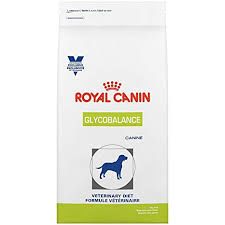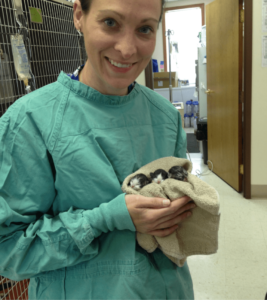[vc_row][vc_column][trx_section box=”yes”][trx_title align=”center” color=”#d9ae4c” weight=”700″]
Diabetes
[/trx_title][trx_title align=”center” color=”#d9ae4c” weight=”700″]
Yep! Dogs Get It Too.
[/trx_title][trx_title type=”4″ align=”center” color=”#434544″ weight=”700″ bottom=”mini”]by Dr. Eileen Savier CVA, CVCH[/trx_title][vc_column_text]

Your dog’s metabolism is regulated by a number of factors. One part of that is glucose production, regulation, and utilization. Glucose is the fuel that is used by cells so they can perform their duties. Glucose is made from the food we eat and stored in the liver and muscles (glycogen). Insulin facilitates mobilization and allocation of glucose for cells to use, without insulin glucose cannot be stored or used by cells even though it is in the blood stream.
In dogs who are not producing enough insulin, the blood sugar is very high but the body cannot use it. This causes your pet to drink excessively, urinate excessively, and lose weight. Some breeds are at higher risk of developing diabetes than others (Samoyeds, Miniature Schnauzers, Miniature Poodles, Pugs, and Toy Poodles) but it could occur in any dog, especially ones that are obese. This is a treatable condition, however, it does require a committed effort. Treatment of diabetes is multifactorial due in part to the many factors that affect blood glucose and your pet’s response. Diabetes is caused by a loss or dysfunction of specialized cells in the pancreas, in dogs cell loss tends to be rapid and progressive. Regardless of the underlying cause dogs with diabetes have very high blood glucose level and glucose in the urine.
Once a diagnosis has been made there are several changes that need to be made to control this condition. This will include the following: insulin therapy, diet regulation, exercise, and prevention/ control of concurrent diseases (like urinary tract infections). Vetsulin is the only veterinary product for the management of diabetes in dogs; however, there are other types of insulin available. Vestulin is a good resource for more information on diabetes, monitoring and controlling diabetes, and FAQ’s.

A diet high in fiber is beneficial in treating obesity and improving blood glucose control. Fiber forms a gel in the intestine slowing glucose absorption. While a prescription diet is helpful it is more important that your pet eats consistently! Exercise has a glucose lowering effect by increasing the mobilization of insulin from its injection site (increased blood flow) and by stimulating glucose transporters in muscle cells. The daily routine for diabetic dogs should include exercise, preferably at the same time each day. Strenuous and sporadic exercise can cause severe low blood sugar and should be avoided.
Diabetes is treatable but it will require an investment of time and money. This disease and monitoring is not the same in every patient, your veterinarian can discuss treatment choices, monitoring, and prognosis with you.
Your Partner in Healthy Pups – Dr. Eileen
[/vc_column_text][/trx_section][/vc_column][/vc_row][vc_row css=”.vc_custom_1533135180690{margin-top: 40px !important;}”][vc_column css=”.vc_custom_1533134942241{background-color: #d9ae4c !important;}”][trx_title type=”2″ align=”left” color=”#f6f2e4″ left=”20″ right=”20″]About Dr. Eileen Savier[/trx_title][vc_column_text css=”.vc_custom_1533135315368{padding-right: 20px !important;padding-bottom: 30px !important;padding-left: 20px !important;}”] Barks & Recreation is proud to feature Dr. Eileen Savier CVA, CVCH as our Veterinary Blogger in our “From the Vet” Series. Currently part of the team of doctors at Keystone Veterinary Clinic, Dr. Savier is a 2012 Graduate of the Ross University School of Veterinary Medicine, She completed her clinical experience at The Ohio State University and after veterinary school she pursued further education and certification in Veterinary Acupuncture, Chinese Herbal Medicine, and Fear Free veterinary visits. Dr. Savier has a special interest in integrative medicine, animal behavior, and internal medicine and is committed to improving animal health care by integrating Eastern and Western philosophies. She enjoys working with fearful & aggressive dogs and cats and she has had additional training in low stress handling techniques and encourages positive reinforcement during exams and procedures. Her clinical interests include pain management, animal behavior, geriatric patient care, and internal medicine. Dr. Savier is a member of the following associations:
Barks & Recreation is proud to feature Dr. Eileen Savier CVA, CVCH as our Veterinary Blogger in our “From the Vet” Series. Currently part of the team of doctors at Keystone Veterinary Clinic, Dr. Savier is a 2012 Graduate of the Ross University School of Veterinary Medicine, She completed her clinical experience at The Ohio State University and after veterinary school she pursued further education and certification in Veterinary Acupuncture, Chinese Herbal Medicine, and Fear Free veterinary visits. Dr. Savier has a special interest in integrative medicine, animal behavior, and internal medicine and is committed to improving animal health care by integrating Eastern and Western philosophies. She enjoys working with fearful & aggressive dogs and cats and she has had additional training in low stress handling techniques and encourages positive reinforcement during exams and procedures. Her clinical interests include pain management, animal behavior, geriatric patient care, and internal medicine. Dr. Savier is a member of the following associations:
- American Veterinary Medical Association (AVMA)
- International Veterinary Academy of Pain Management (IVAPM)
- American Association of Feline Practitioners (AAFP)
- American Veterinary Society of Animal Behavior (AVSAB)
- American Association of Traditional Chinese Veterinary Medicine (AATCVM)
- Ohio Veterinary Medical Association (OVMA)
Dr. Savier shares her home with two (soon to be three) dogs, two cats, and a toddler. She lovingly refers to her two dogs as Coconut Retrievers as they were rescue dogs she brought home from the island of St. Kitts. In her free time she enjoys spending time with her family, going to the beach, and planning her next Disney vacation.
Join us every month for Dr. Savier’s “From the Vet” series to get more information related to the health and welfare of your furry family members![/vc_column_text][/vc_column][/vc_row]



